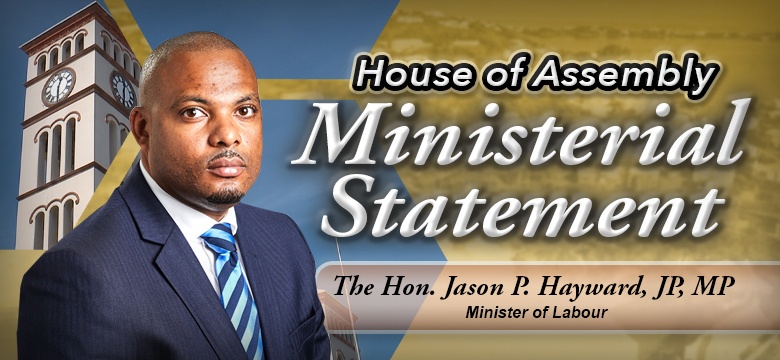The Tabling of the Financial Assistance Amendment Act

Mr. Speaker,
I rise today to announce to this Honourable House the tabling of the Financial Assistance Amendment Act 2021 and the eventual tabling of the Financial Assistance Amendment Regulations 2021 as part of the Financial Assistance Reform Strategy.
The Act will be debated in this Honourable House following the normal procedure and once it has been brought into force the Regulations will be made, as the Regulations are subject to the Negative Resolution procedure. The Regulations will come into operation when the Minister may appoint by notice in the Gazette.
Mr. Speaker,
This Government is committed to improving the Financial Assistance system that currently helps those in the community who require financial support to meet their basic needs.
Mr. Speaker,
This reform strategy aims to chart a new course for Financial Assistance making it a more lucid, effective and efficient system that places emphasis on transforming those who have been unable to participate fully in the productive economy and realize their potential. There is a more vigorous motivation to move abled-bodied and abled-disabled recipients into employment opportunities as soon as practicable to avoid long-term dependency of the system.
The Financial Assistance Reform Strategyconsists of four (4) overarching aims and strives to:
1.Increase sustainability of the Financial Assistance program;
2.Strengthen the education, training, and employment services for Financial Assistance recipients;
3.Encourage individuals and families to become financially independent; and
4.Improve the program to better support persons with disabilities.
Mr. Speaker,
To execute the Financial Assistance Reform Strategy, legislative amendments will take place in two phases. This first set of legislative amendments include the following:
1. Defining a disabled person.
2. Require a disabled person to submit with their application for an award a medical opinion which confirms the nature and extent of the disability; the fact the disability impacts the person’s ability to find or retain suitable employment; and where possible, the likelihood of the person being able to work after a period of rehabilitation or treatment.
3. Where the medical condition of a disabled person receiving a financial assistance award has changed or suspected to have changed since being granted the award, the Director may request that the recipient provide another medical opinion.
4. Ensuring that abled-bodied persons have Personal Employment Plans designed to place them on a pathway to employment, and to promote successful performance outcomes. This is a collaborative exercise involving the Department of Workforce Development and other industry partners. There will be no deductions from their financial assistance award during the tenure of their ‘agreement’ which is not to extend beyond three (3) years. This will allow them to build their assets and prepare to be ‘self-sufficient’ by the end of the agreement term;
5. Expanding the eligibility criteria for ‘abled-bodied’ persons to include the completion of a Personal Employment Plan agreement within the first six months of submission.
Mr. Speaker,
The new system will focus less on policing and administering rules and more on helping individuals access the services and support they need. Personal Employment Plans will provide clients with a valuable employment planning tool, promoting greater collaboration between clients and their case worker.
It will also require taking action to address policies outside the Financial Assistance system that impede progress toward achieving stable incomes and more sustainable employment for Financial Assistance recipients. It is our expectation that this approach will not only meet their basic needs, but also allows them to achieve a greater sense of personal and financial success.